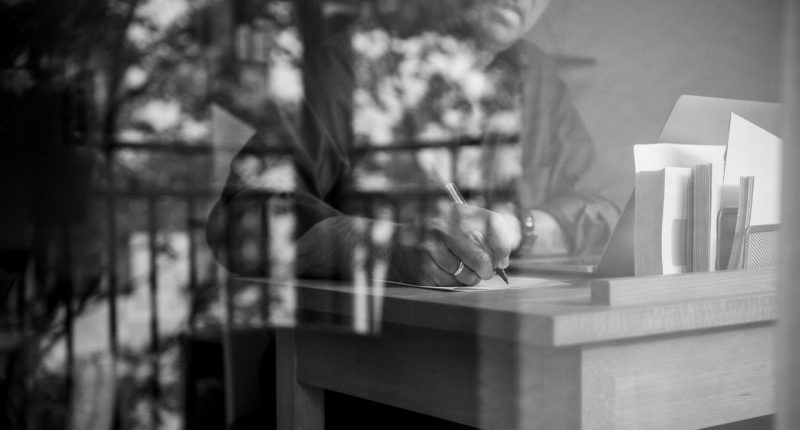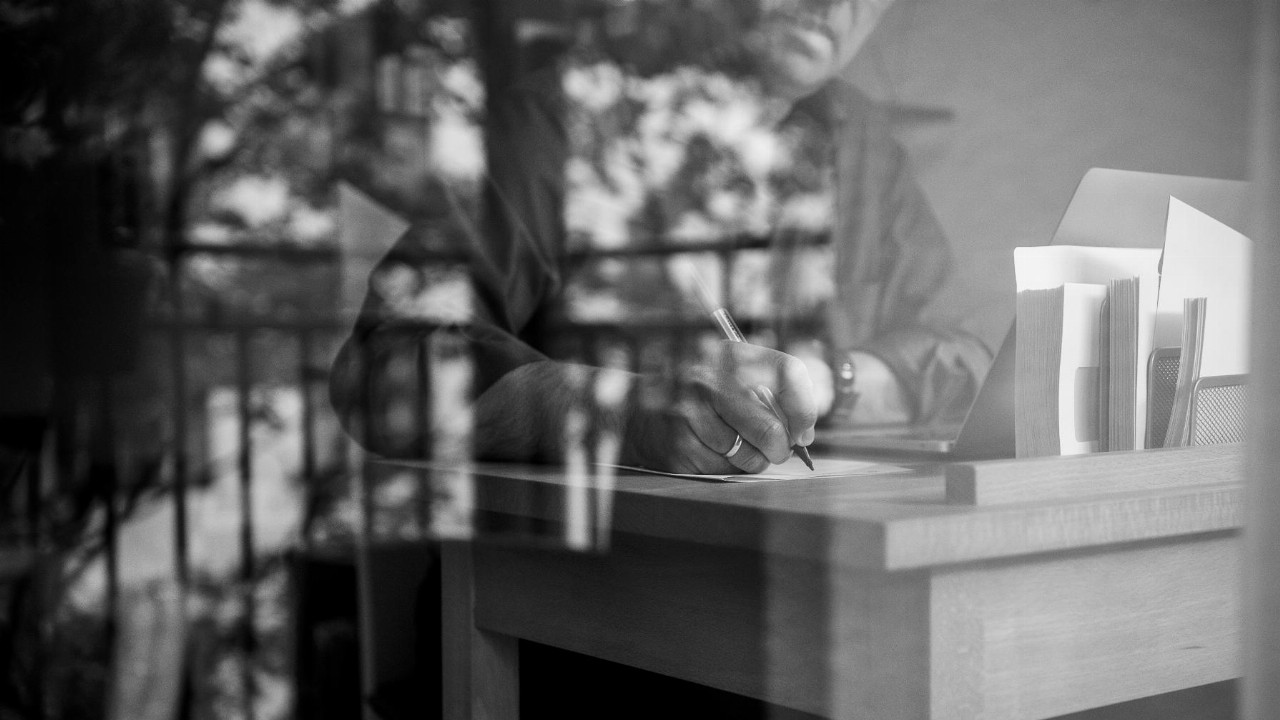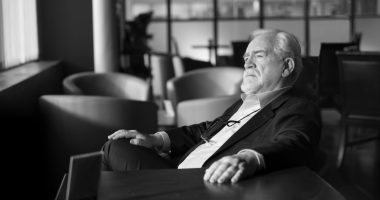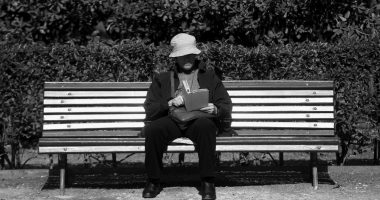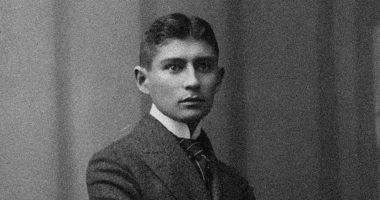My son’s first year of life was bookended by what felt like interminable stays in hospital. Brow presenting, S — as I’ll call him here — arrived via emergency C-section with jittering limbs and a stomach full of meconium. A year later almost to the day, we’re back in emergency — that word again — with S on fire, a bacterial infection wracking a body that, though it has filled out in most of the right places since we were last here, is still small, brittle. That morning our GP had peered down his throat and announced calmly: “That’s the worst I’ve ever seen.”
S improves with the same antibiotics he had been given at birth to counteract the effects of the meconium. Still, father and son are struck by one thing after another: tonsillitis, bronchiolitis, gastro. Now that COVID is receding, it seems the viruses it held back are returning with force. I hear it’s worse in Melbourne because the children who went through the city’s extended lockdowns have had no chance to build up their immune systems. Childcare, to which we’ve just started taking S, is a Petri dish. The staff are kind, visibly hardworking and dedicated, but are no longer masking up now it isn’t mandated. I don’t feel great about this, and keep mine on during drop-offs and pick-ups, feeling like a hysteric. The morning nasal swab a new and unwelcome ritual. Negative, negative, negative.
We have to cancel S’s first birthday party, which was to have doubled as a housewarming after relocating from Adelaide to Melbourne. My wife, M, and I take down the bunting we’d put up, desultorily chew on some of the ladybird-shaped biscuits my mother-in-law had specially made for the occasion. I tell myself S will emerge stronger from all this but honestly that’s about as far as my optimism will stretch, and I’m not sure I really believe it anyway.
Mostly I’m exhausted and irritable. My cough has set in, and a cold arrives out of weather that even by Victorian standards is unseasonal and capricious. I feel like I’m foundering as a father to S, and as a partner to M. Unfocussed. Self-pitying. Resentful. A sense of entrapment, especially when it’s too wet — or I don’t feel well enough — to walk with S around the block, under normal circumstances a reliable game-changer.
S wakes up with a puffy eye. I take him to childcare, but am asked to collect him a few hours later. His eye is worse, and he’s been uncharacteristically “emotional”. Our GP diagnoses bacterial conjunctivitis, and gives me a prescription for eyedrops. There go the two remaining days I have this week to write; a thought I try and fail to banish as unutterably selfish.
S is unhappy. His cough, like mine, continues to linger, and the eyedrops don’t seem to be working fast enough. We see our GP again who, concerned about his rattling breaths, instructs us to take him to the ED. A long wait, punctuated by episodes of Bluey on M’s iPhone, and we’re given yet more antibiotics. We don’t have to stay overnight this time, and for that we’re grateful. For a writer, ED waiting rooms teem with material. They’re where the trouble is, hotbeds for the manifestation of abuse, folly, neglect, and sheer happenstance with which all life, all the time, is pregnant to greater or lesser degrees. Right now I can’t escape fast enough.
“People who don’t have children,” wrote Karl Ove Knausgaard in A Man in Love, “seldom understand what it involves, no matter how mature and intelligent they might otherwise be, at least that was how it was with me before I had children myself.” Friends, including one couple who are trying for their own baby, keep asking us to dinner. Tricky for us with S’s routine! I always text back, hoping to sound regretful rather than admonishing. But Knausgaard is right — we are all, while perhaps abstractly aware, experientially ignorant in our pre-parenthood years, not yet blessed with what philosophers call knowledge by acquaintance. I knew it would be hard, but I didn’t know.
Hard, yes, but joyous too. In its own way, that can’t be prepared for either. The smile that undoes you. The sudden shift — a new tooth, or motor skill, or sound — that somehow feels like a collective achievement, a small light along an obscure path. As a parent, sometimes days leak away in frustration and fatigue, even rage (I’ve inherited my father’s anger — deep, sudden, shocking). The world contracts to a kind of blur of feedings, nappy changes, and increasingly forlorn attempts at diversion. You find yourself reasoning and bargaining with a human who cannot be reasoned or bargained with. Your own sense of self is neutered, or disappears altogether. Loneliness advances like black mould.
But there are days when delight follows delight, when S’s openness, his relishing of novelty and play, his burgeoning intelligence and easy affection renew you, renew everything. It all feels, still, heightened by the circumstances of S’s birth, the taste of loss that came with the sight of him being taken away in an ambulance incubator, and that has never completely left M or I. It has been an odd kind of gift.
As I finish this essay, I have one eye on my laptop screen and one on the video monitor as S takes his morning nap. He was supposed to be in childcare today but we got an email this morning of the kind I’ve come to dread: too many staff are unwell, and the nursery is closed for the rest of the week. I’m on deadline, and M can’t take any time off work. I’ll have to write when I can, which is to say whenever S deigns to sleep.
The conjunctivitis is almost gone. His breathing is cleaner, less effortful. Having knocked a few hundred words off my essay, I push him to the supermarket after his nap. He eats sushi, tuna and avocado, and we surge home, feeling like our old unit again, a swiped bag of nappies rustling around in the bottom of the pram. When we get home S is impish and charming, and busies himself with the various objects currently bewitching him: the dustpan and brush, a pair of M’s old sunglasses, various remote controls, a plastic train that wheels itself across the floor to a tune I can’t place. He desperately wants to walk, totters about from my legs to the coffee table and back, a strange but winning dance, bobbing and flapping.
Later, we have to pick M up from work. As I pull the door shut behind us, I ask S, bouncing around in the crook of my arm, if he’s ready to go. “Yes!” he says, I think for the first time.
Ben Brooker is a writer and critic based in Naarm (Melbourne), Australia. He is working on his first book, a cultural history of psychedelics in Australia.
Stay up to date on all the latest commentary, analysis and opinion pieces from Art of the Essay by following on Twitter, Instagram, Facebook and LinkedIn.
